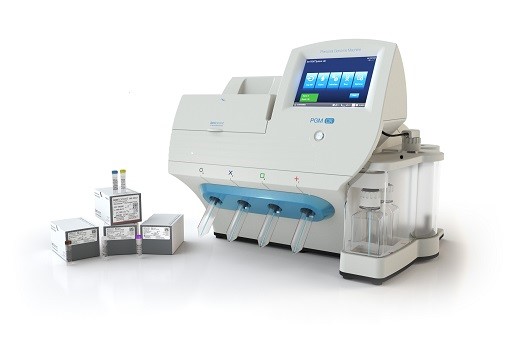Oncomine™ Dx Target Test – P160045/S035
This is a brief overview of information related to FDA’s approval to market this product. See the links below to the Summary of Safety and Effectiveness Data (SSED) and product labeling for more complete information on this product, its indications for use, and the basis for FDA’s approval.
Product Name: Oncomine Dx Target Test
PMA Applicant: Life Technologies Corporation
Address: 7335 Executive Way, Frederick, MD 21704
Approval Date: August 11, 2022
Approval Letter: Approval order
What is it?
The Oncomine Dx Target Test (ODxTT) is a laboratory test designed to find genetic variations in the genetic material of tumor tissue from patients with non-small cell lung cancer (NSCLC) and cholangiocarcinoma. The test detects changes to the DNA (mutations) in the BRAF, EGFR, and IDH1 genes and chromosome abnormalities caused by rearrangement (translocation) in ROS1 and RET genes.
This approval expands the indications for use of the Oncomine Dx Target Test to testing for mutations that activate the ERBB2 gene (ERBB2 single nucleotide variants and ERBB2 exon 20 insertions) in patients with non-small cell lung cancer. The test will help identify those who may benefit from treatment with an FDA-approved drug, ENHERTU (fam-trastuzumab deruxtecan-nxki).
In normal tissue, the ERBB2 proteins transmit signals in cells to regulate cell growth. Mutations in ERBB2 genes result in abnormal functioning of their proteins and stimulate cancer cell growth in NSCLC.
How does it work?
In normal tissue, ERBB2 proteins send signals in cells that regulate cell growth. Mutations in these ERBB2 genes can stimulate cancer cell growth. For this test:
- The doctor takes a small amount of cancer tissue from a patient's tumor.
- The tissue sample is sent to the laboratory for testing.
- At the laboratory, DNA is separated from the tumor cells and mixed with chemical substances called reagents that find and test the DNA sequences.
- The tumor’s sequenced DNA is then reviewed by a trained medical professional to see if these mutations or translocations are present, which will also indicate if the patient is eligible for treatment with ENHERTU (fam-trastuzumab deruxtecan-nxki).
- The report is sent to the patient’s doctor, and the doctor uses this information to help manage the treatment of the patient’s cancer.
When is it used?
Doctors use the Oncomine Dx Target Test to test if a patient with non-small cell lung cancer may be eligible for a specific therapy to treat their cancer.
What will it accomplish?
The Oncomine Dx Target Test helps doctors identify patients with non-small cell lung cancer who may be eligible to receive treatment with ENHERTU (fam-trastuzumab deruxtecan-nxki).
Identifying these mutations can help patients with this type of cancer receive personalized treatment targeting these genetic changes.
When should it not be used?
There are no known reasons not to use this test.
Additional information (including warnings, precautions, and adverse events):


